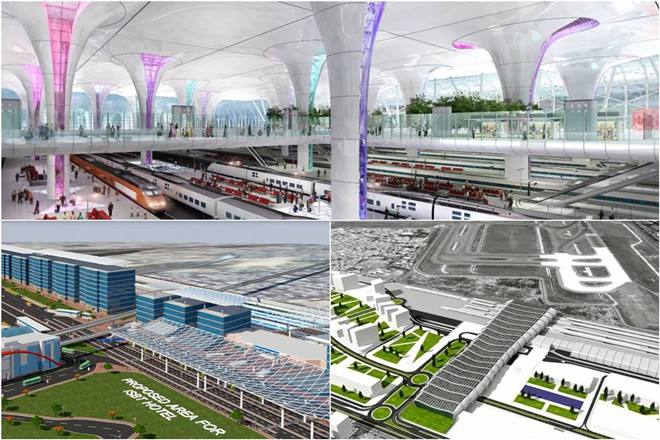Once this project is complete, travellers visiting the Statue of Unity in Gujarat will have a hassle-free railway journey.
Train to Statue of Unity soon! Recently, Railway Minister Piyush Goyal reviewed the progress of the upcoming Indian Railways’ Kevadia Rail Link project as well as encouraged the entire team to complete the development work in a time-bound manner to further boost the tourism activities at the Statue of Unity in the state of Gujarat. Once this project is complete, travellers visiting the Statue of Unity in Gujarat will have a hassle-free railway journey. Under this project, an Indian Railways station is being set up, connecting the tallest statue in the world to the country’s network.
At present, Vadodara, Bharuch and Ankleshwar railway stations provide Indian Railways’ connectivity to the Statue of Unity, while the nearest airports to the iconic statue are Vadodara Airport and Sardar Vallabhbhai Patel International Airport. The central government, in Budget 2017, announced the gauge conversion of the Dabhoi-Chanod rail line. This rail line is being extended up to Kevadiya. The foundation stone for the Kevadiya railway station was laid in December 2018 by President Ram Nath Kovind. Once the railway station in Kevadiya is ready, there will be a huge relief for those who have been travelling by train to see the Statue of Unity. The upcoming railway station in Kevadiya is located at a distance of around five kilometres from the Statue of Unity.
The national transporter is connecting the Kevadiya colony and Chandod, Tilakwada, Moriya, and Garudeshwar. The section between Chandod and Dabhoi, which is 18-kilometres long, is undergoing gauge conversion. A new railway line between the Chandod-Kevadiya section is likely to be laid. It was reported that the total length of the project is about 50 kilometres, which includes 18 kms of gauge conversion of Dabhoi-Chandod and 32 kms of extension of the line from Chandod to Kevadiya Colony. In the section from Dabhoi to Chandod, there are 4 major bridges, 16 minor bridges, as well as 12 Low Height Subways/Road Under Bridges/Road over Bridges. While there will be 5 major bridges, 30 minor bridges as well as 18 Low Height Subways/Road Under Bridges and Road Over Bridges in the new Chandod-Kevadiya section. The project is estimated to cost around Rs 663.29 crore.
Meanwhile, the Kevadiya station building will have Green Building Certification and will be constructed at a cost of Rs 20 crore. The ‘Divyang’ friendly station will have a three-level structure, with the first and second levels boasting a VIP room, a general waiting room for passengers, an executive lounge for VVIPs, foreign tourists, station master room along with other facilities.

